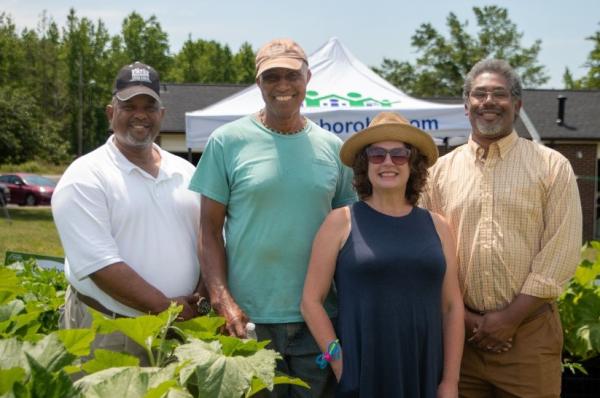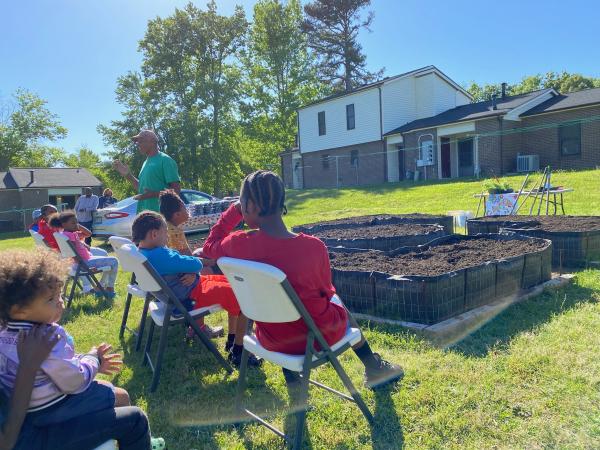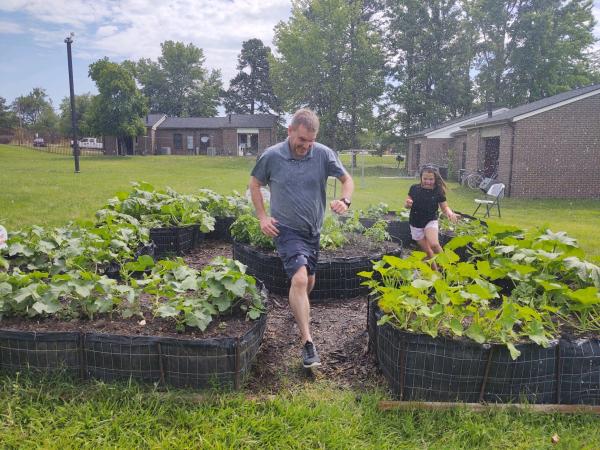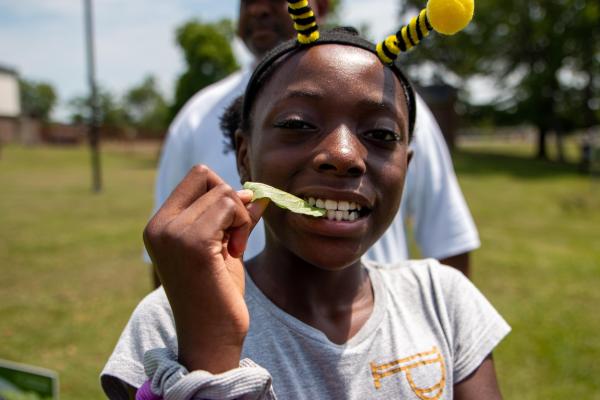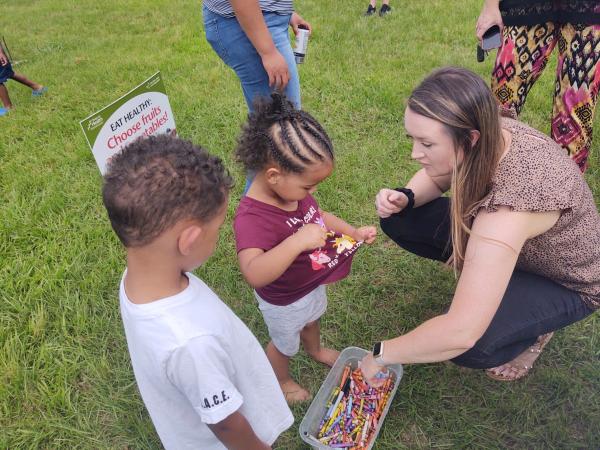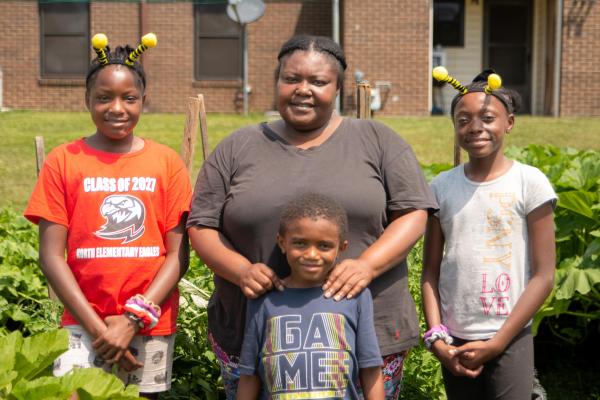March 14, 2023
Growing School & Community Partnerships in Rural North Carolina
In collaboration with its neighboring school, South Elementary, the Weatherly Heights Community Garden offers nature-based enrichment that supports whole child, whole family, whole community health.
español | English
According to extensive analysis conducted by the National Healthy Schools Collaborative in 2021, “research confirms high-quality partnerships between schools and communities create positive health and learning outcomes.”
In Roxboro, North Carolina (population 8,134), a local farmer, public housing leaders, and elementary educators came together to introduce students and families to the many benefits of gardening: healthy eating, improved mood, reduced stress, stronger social emotional skills, physical activity opportunities, and more.
Learn from their experience to help jumpstart partnerships in your community!
1. Learn from Local Experts
The city of Roxboro and surrounding area of Person County, North Carolina, take pride in a rich agricultural history. Centering local knowledge and traditions is a foundational strategy for culturally responsive community networking.
Bernard Obie, a 5th generation farmer in Person County and owner of Abanitu Organics, approached the Roxboro Housing Authority with a raised bed garden concept that makes healthy food and outdoor spaces more accessible for residents of all ages.
“Roxboro is a small town,” he shares. “Things are better here than they are in many places, but there is pressure to live. Children have a lot to think about: personal, family, social, cultural kinds of things. I was motivated to do something that would be helpful to the community's health and well-being, especially of the children.”
“People sometimes think of food the same way they think of gas for a car, but there's so much more to the story. You can have all the money in the world and if you don't have real, nutritious food, you cannot be healthy.” –Bernard Obie
“In 2018, I published The Good Food Growing System: a starting place for people interested in growing their food that is inexpensive and doesn't require a lot of digging or lifting, which many people find physically challenging or impossible.”
Person County Cooperative Extension, locally owned businesses, and community groups have all signed on to support the success of this initiative.
2. Align Funding with Equitable Whole Child Health
“The CARES Act allotted the Roxboro Housing Authority funding for COVID-related activities to support our residents,” said Felts Lewis, Executive Director of the Roxboro Housing Authority. “Mr. Obie’s garden promotes community, and we knew that we had to do something to get our residents out of their units to do something safely.”
Healthier Generation defines health equity in whole child health as youth having the supports in place to thrive regardless of where they live, learn, and play. Larry Mayfield, Family Self-Sufficiency Coordinator at Roxboro Housing Authority, is dedicated to advancing health equity on a daily basis.
“At Roxboro Housing Authority, we believe in a holistic approach towards our tenants,” explains Mayfield. “We don't just want to take their money for rent and provide housing. We want to enhance every aspect of their overall life: social, economic, every way possible. I don't always have the resources to do these things myself, so we link up with other agencies in the community to bring our shared goals to fruition.”
“The collaboration with South Elementary has helped tremendously,” according to Mayfield. “We're hoping that the level of joy and excitement that the parents see from the children will bring the adults out to see what we are doing.”
3. Layer On Learning Opportunities
When South Elementary STEAM teacher Erin Redfern approached the local 4-H about gardening curriculum, she was thrilled to learn what was happening just steps across the street with Roxboro Housing Authority.
“This is another way to promote healthy living and to educate in general—to read a book, to give them something to be proud about, to learn to like new foods. It’s a chance for us to have that interaction that may be even easier out of the classroom,” shares Redfern.
“When I see the kids in class, I challenge them and say, ‘When you go shopping with Grandma or Dad or Mom or whoever, I want you to pick out a new fruit and vegetable.’ They started sending me pictures of them eating healthier, and it warms my heart.”
South Elementary teachers hosted weekly events throughout summer break, welcoming residents of all ages to experience the garden’s many benefits.
Local staff from Healthier Generation led nature-based workshops and shared playful healthy eating resources from Kohl’s Healthy at Home like taste tests, tips for cooking with kids and teens, and mealtime conversation starters.
4. Grow Your Own Way
Heading into the one-year anniversary of the Weatherly Heights Community Garden, this unique partnership is flourishing, with local relationships at the heart of the programming.
South Elementary is implementing a Junior Master Gardener program. Fundraising is underway for a greenhouse to promote STEAM learning year-round on the school grounds and a community-enriched summer camp for fourth and fifth graders led by Person County Schools staff and local volunteers, who will continue to teach healthy food choices and gardening.
Clarissa McNeil, mother of three, lives and works in the Roxboro public housing communities. “The garden keeps kids healthy and active,” she explains. “Not only do they get to eat from the natural world, they get to water the plants and participate in everything that we do with the garden: the arts and crafts, mingling with friends.”
“I always try to get my kids to eat vegetables, but when they actually see them grow, it makes them want to eat even more. We’re growing things we never had before. It’s great.”
Stay inspired by new ideas and learn from our catalogue of success stories, tips, and evidenced-based trainings for school staff from Kohl’s Healthy at Home.


